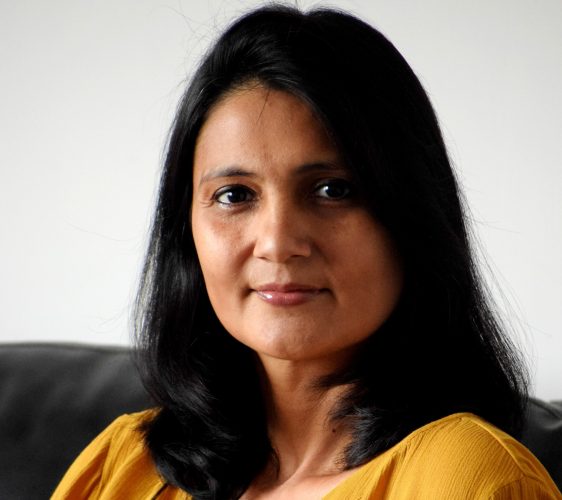The New Year is like a clean slate and the beginning of every year presents a chance for a fresh start. It’s the perfect time to set new goals and many of you must have made resolutions or drawn up a list of things you’d like to accomplish by the end of this calendar year with some of you already steaming ahead full of enthusiasm, towards your target. But as days turn into weeks and weeks stretch into months, don’t be surprised if instead of getting closer to your goal, the distance between you and your target grows farther apart. The only consolation is that you wouldn’t be the only one feeling the pressure.
According to an article published by New York Times, a study conducted by FranklinCovey, a time management firm revealed that one third of people who make new year resolutions, don’t get past the first month. Resolutions are merely new habits. Developing good habits and eradicating the bad ones. And like it’s with all habits, it takes time, diligence and regular practice to get into it. Also, before the actual new habit is formed, there has to be a conducive environment that helps you to take the first step towards this habit, followed by a reward that reinforces the routine and keeps you wanting to continue with it.

Sometimes setting a too big target at the very start, one you’re likely to struggle with could result in getting demotivated and giving up on smaller, more realistic resolutions that could actually benefit and improve your health and lifestyle. So to be able to go through with your resolution, it’s crucial to have the perfect start. And what better time than at the very outset of another New Year, you take this chance to ensure you make the right choices.
So, whether you’ve chosen to be happier, to learn a new skill, face your fears or become healthier, which happen to be some of the most popular resolutions worldwide, it’s imminent that its relevance to your life and you are realistic about your abilities. Recognize your limitations. Whether it’s skills, time, responsibilities or your health – you must take them into consideration before planning your list of goals and also when setting a doable schedule. It’s also important to understand how much you can push the envelope and what is plain impossible at this stage in your life.
As a writer the start of a new project draws me to my desk, but only a daily writing routine is what ensures I remain seated at my desk until I complete the project. And over the years if there’s one golden rule that has worked for me and helped me to finish multiple projects, it’s the planning ahead of the actual execution. A new idea is perpetually exciting. Even a child is enthused at the start of a new activity, but the real challenge is when the novelty of the activity dies and monotony sets in. Only when you plan for these moments will you be able to get through them. Planning not only saves time and energy, it ensures you have all bases covered. Experts suggest planning for your mistakes as well so that when you slip up, it doesn’t come as a surprise and you don’t get disillusioned, give up on the resolution or lose your conviction and stop making resolutions altogether.
So, whether you’ve chosen to be happier, to learn a new skill, face your fears or become healthier, which happen to be some of the most popular resolutions worldwide, it’s imminent that its relevance to your life and you are realistic about your abilities. Recognize your limitations.
Furthermore, regularly measuring your progress like logging in a journal or using an app to keep track also helps to stay upbeat about your step-by-step progress and it provides you the opportunity to celebrate the small achievements along the way or course correct if the need arises. It’s easy for some people to hold themselves accountable, but others might require outside accountability in order to sustain the action that will help to achieve the goal. Social Media Accountability is a great way to stay motivated and feel responsible towards your actions especially when others get involved in your journey. All external validation isn’t bad and some form of feedback can be encouraging, ensuring you continue to pursue your goals even if it’s simply to post your achievements online. This platform can also connect you with people who have taken up similar resolutions. It provides a space where you can challenge one another as well as motivate each other when things get tough.

Like joining a writing community or taking up a blogging challenge can help writers accomplish much more than they would have done if they set out to write alone – you too can find a community that fits your interests. I often find people who take up new hobbies like photography or painting, they set themselves a daily challenge for a month and post their finished or work-in-progress on social media which is a great way to keep themselves on track as well as get valuable suggestions and feedback for improvement.
While failed resolutions can leave adults frustrated, for children the implications of starting something new and then giving up midway runs far deeper. And from a young age if children continue and get into the habit of taking up an activity and dropping out midway – in the long run it can become second nature. This will leave a dent in their decision-making confidence and could lead to them shying away from taking up responsibilities, be it at the school level or later in life as a professional. Teachers too find it difficult to entrust a child who has a reputation of being unreliable with leadership roles so crucial to their all-round development.
So be it child or adult, making and keeping New Year Resolutions can create a positive momentum in their life and boost their self-efficacy, manifolds!
Images courtesy: Pixabay
Lesley D. Biswas is a freelance writer and children’s author based in Kolkata. Her interests include nature, bird photography and cricket.








